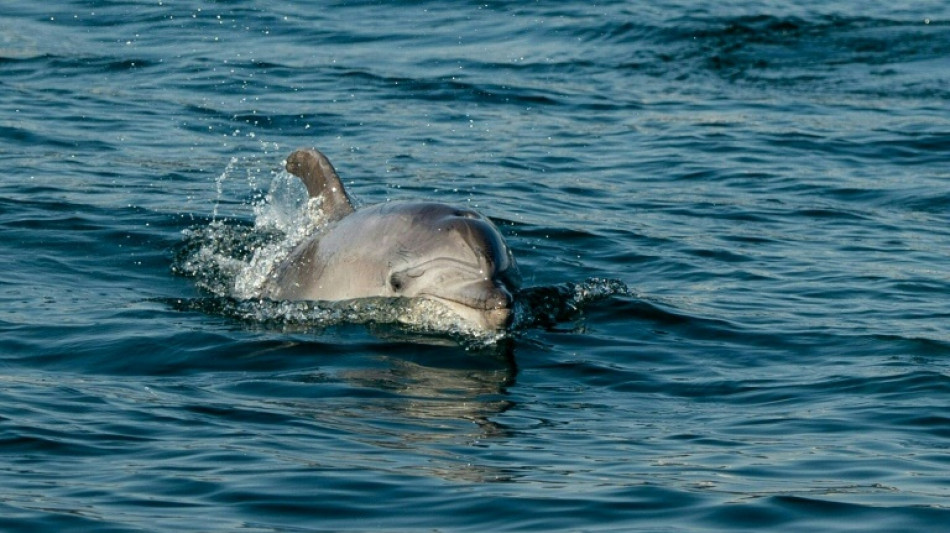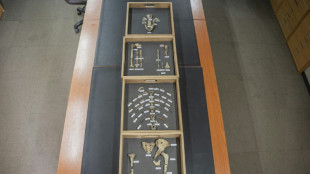

Dolphin cruises help Istanbul treasure its Bosphorus bottlenoses
As the first dolphin fin surfaced from the Bosphorus, a ripple of excitement went round passengers on a free boat ride to see one of Istanbul's most graceful sights.
Whether they live there or are just passing through, dolphins and porpoises feel very much at home in the busy strait that bisects the Turkish megapolis of some 16 million people.
Istanbul city council organises free summer dolphin spotting trips with the World Wildlife Fund (WWF) to raise awareness of the dangers facing the sea mammals.
The wildlife project's head Ahmet Yasar Yildiz said the city council was doing "everything they can" to keep them in the strait linking the Black Sea to the Mediterranean.
"This is their home and dolphins must continue to live here," the 59-year-old said.
Their presence in the Bosphorus was the sign of a "perfect ecosystem", he added. "The strait is clean, cleaner than most bays, and we want to keep it that way."
Microphone in hand on the boat's top deck, WWF Turkey's marine mammals programme leader Cansu Ilkilinc explained to the crowd below that the strait is home to two species of dolphin and one species of porpoise -- an impressive number for an exceptionally busy urban waterway.
- Climate change, habitat loss -
As a key corridor for international maritime navigation, 39,000 ships passed through the Bosphorus Strait last year, according to Turkey's ministry of transport -- not including pleasure boats and the ferries that constantly ply from one side to the other.
Despite the volume of shipping and straddling Turkey's largest city, dolphins seem to prefer the strait's waters to the Black Sea and Sea of Marmara on either side.
This is because fish are abundant and the strong currents spirit away pollution, Yildiz said.
Yet all is not pristine for the dolphins in the strait, the wildlife project lead warned, with threats from climate change, pollution, overfishing and habitat loss.
"Uncontrolled construction and industrialisation are a problem everywhere, and it's a serious problem in Istanbul," he added.
Yet since the first free educational outings began in 2022, their success has been remarkable.
"Only once have we not seen a dolphin," Yildiz told AFP, adding that the hundred or so spaces on the trips are booked up "within three minutes" when they go online every fortnight.
- Follow the seagulls -
During these outings, the WWF attempts to keep a record of the strait's resident dolphins, hoping to identify them by a distinctive feature such as a mark or a scar.
"One of them has been living here since 2012, you can recognise it from its dorsal fin," smiled Ayse Oruc, head of WWF Turkey's Marine Biodiversity programme, marvelling at the variety of life in the heart of "one of the biggest cities in the world".
Besides the harbour porpoise, the Bosphorus is home to both the common and bottlenose dolphin, Ilkilinc said.
The 31-year-old offered up a few tips for spotting them: "When the seagulls dive and disturb the water, it means they've seen fish underneath, which the dolphins feed on."
She also advised those hoping to catch a glimpse of a dolphin pod to follow in the wake of cargo ships, tankers and -- above all -- fishing boats.
Twenty-four-year-old student Deniz Dincergok came back to shore delighted.
"At one point, a baby dolphin came out of the water and turned around, showing its belly. It was a magnificent moment," he said.
E.Gerber--HHA



